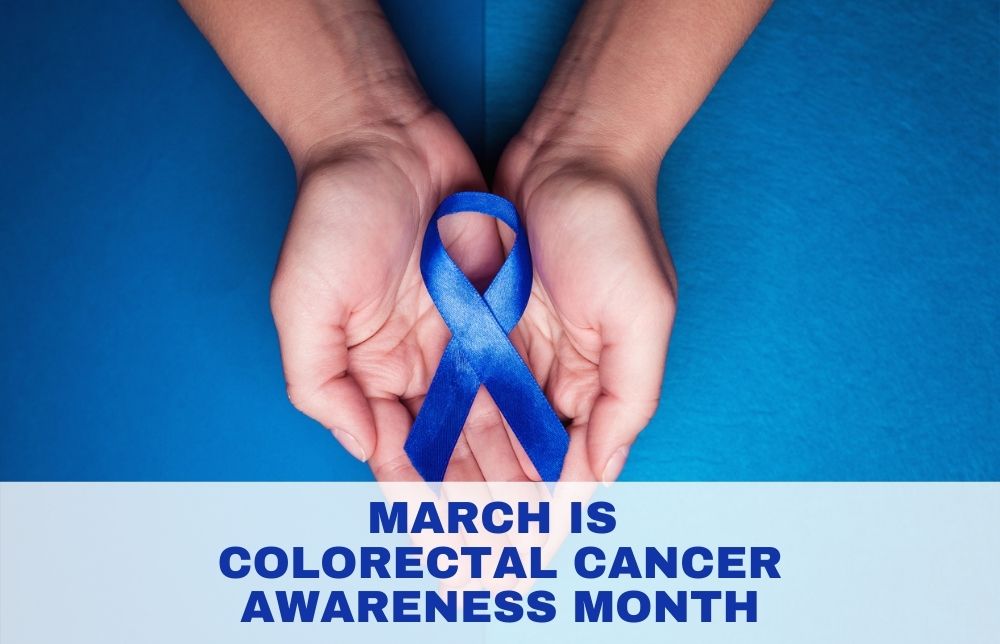
This year, March 5 is the Colorectal Cancer Alliance’s “Dress in Blue Day”. The organization asks people to wear blue clothing or a blue ribbon to raise awareness about the disease, those impacted by it, and raise money for organizations working to advance research and treatments.
Every year, about 140,000 people in the United States get colorectal cancer. 1 in 23 men and 1 in 25 women will develop the disease in their lifetime, and more than 50,000 people die of the disease, according to the Centers for Disease Control and Prevention (CDC). In addition, colorectal cancer can happen at any age, but over 90% of people who develop the disease are at least 50 years old.
Symptoms and Screening
Bloody stool, abdominal pain, and weight loss are symptoms. However, one of the greatest challenges of colorectal cancer is that precancerous polyps and early-stage colorectal cancers don’t always cause symptoms. That’s why screenings are so important. Screening tests are recommended to start at 50 years old and continue to 75. These tests look for cancer in people who don’t have symptoms and can find and remove precancerous growths or early-stage cancers when they’re easier to treat.
Despite the effectiveness of screenings, too many people continue to neglect to get them. According to the CDC, only 2/3rds of adults in the United States are on schedule with the recommended tests. Raise awareness by recommending to friends, family, and social media connections the benefits of early screening.
There are a variety of screening tests available. For instance, choose noninvasive stool tests you can do at home. Or imaging tests that are performed at a doctor’s office or clinic. The latter may require some prep time and/or sedation.
March is also a time for you to focus on your own colon health. Along with screening tests, prepare for a potential cancer diagnosis is important. In conclusion, a Cancer Policy from your association and AMBA is a smart idea. This policy can provide you a single payment upon diagnosis, which can help ease the cost of other out-of-pocket expenses. To learn more about Cancer Insurance, contact AMBA at 866-615-4063 or request more information at www.AMBA-Review.com.
Sources: https://www.cdc.gov/cancer/dcpc/resources/features/colorectalawareness/index.htm
https://www.cancer.org/cancer/colon-rectal-cancer/about/key-statistics.html




